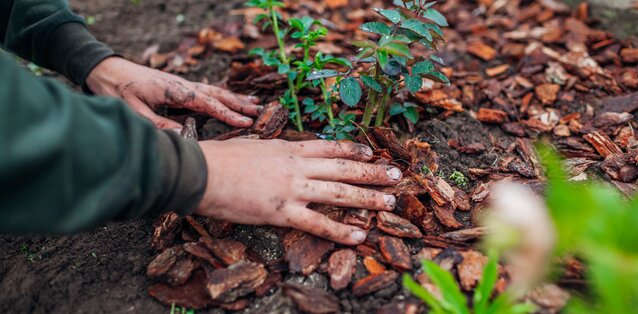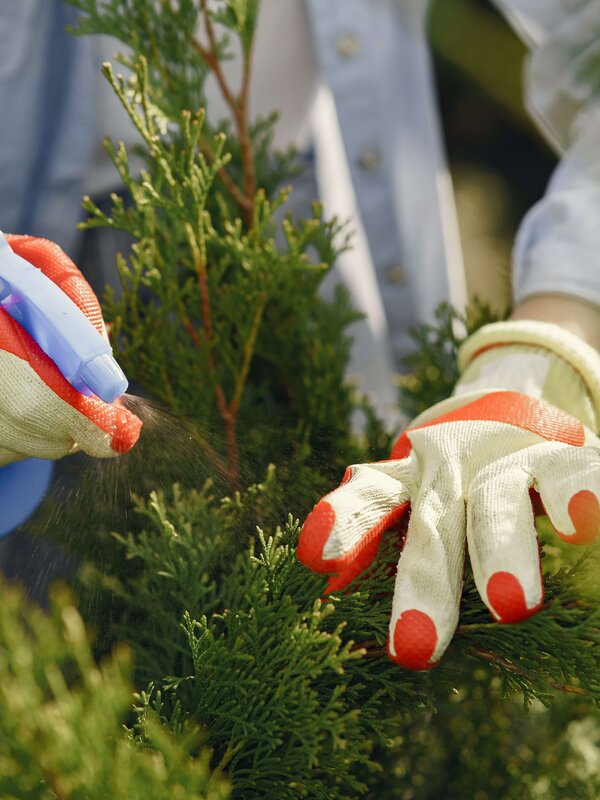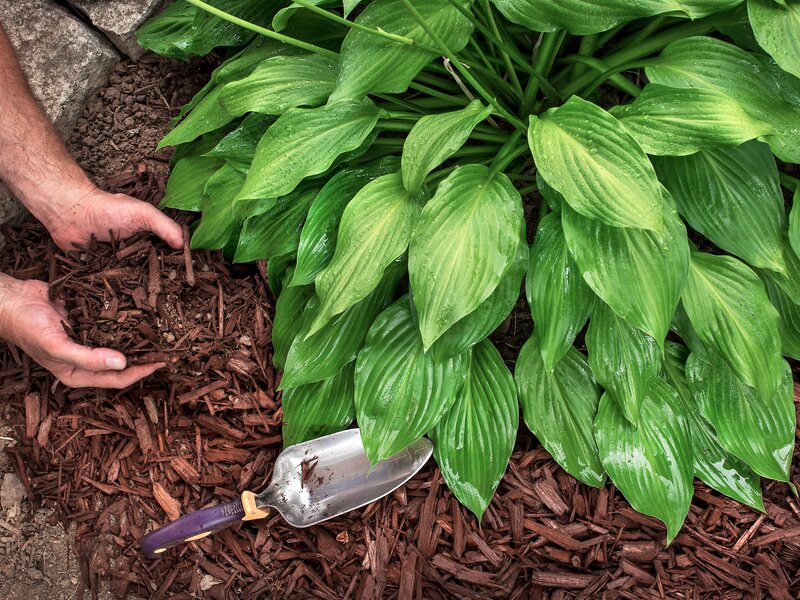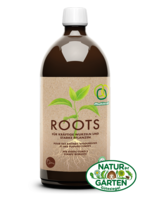

Mulching correctly and strengthening your plants with Effective Microorganisms
Which materials are ideal for mulching?
You can mulch your garden in a number of different ways. Grass cuttings, straw and bark mulch are all suitable materials for different types of plants. First of all, you can use a lawnmower without a grass box. The grass clippings come out of the back of the lawnmower and are spread over the freshly mown lawn. This is an ideal way of mulching large gardens and ensuring that the grass and the soil do not lose any nutrients. Pine, Douglas fir or spruce bark mulch is widely used for bushes and perennials. Bark mulch should be stored for at least three months before it is used to allow any substances that might be harmful to lawns and plants to break down.
Caution: Mulching is not suitable for all plants
As a general rule, the layer of mulch on the soil should not be too thick. If too much mulching material is used, the lawn will die because it will no longer receive enough sunlight. In some circumstances, mulching is simply not possible. This is true of certain vegetable varieties, such as onions, carrots and some lettuces. Certain mulch materials cannot be used with specific types of plants. For example, Mediterranean herbs and lavender do not like bark mulch. Caution is also needed depending on the soil type. Soil in a very shady location or very wet soil should not be mulched.

Mulching correctly with Roots
In summer, you mow your lawn often and produce a lot of grass cuttings. By mulching correctly, you can support the soil environment, provide plants with important nutrients and reduce the need for tiresome weeding. Ideally, you should spread fresh grass cuttings in layer 3 to 5 cm thick between the plants in the garden and then spray the plants with Roots. The Effective Microorganisms it contains will activate the soil life as a result of the mulch and will supply the plants with plenty of nutrients.
Do not worry about white fungi on or in the mulch. These fungi are often mistaken for white mould, but are actually the result of a natural fermentation process and have a positive effect on the soil environment. After around three weeks, the mulch will have been incorporated into the soil by creatures such as hard-working earthworms and you can apply a new layer of mulch. In addition, you should spray the entire bed with Roots around once a week throughout the entire season.
Don’t forget your beds
You should mulch the entire garden – including the beds. This will strengthen the soil. In combination with Effective Microorganisms (for example Roots), this will add nutrients to the soil and make your beds more healthy. In addition, troublesome weeds can be removed more easily. If you mulch correctly, it will bring significant benefits for your beds, flowers and vegetables!

Mulching in the garden – What to do in autumn
In winter, the soil has no protection and is exposed to many harmful influences. Strong sunshine dries it out and, when it is frosty, the creatures that live in the soil move down into the deeper layers. None of this is what is wanted in the garden. Mulching can help to alleviate these negative effects. The mulch enables the soil to retain warmth more effectively and prevents it from drying out, because strong sunshine cannot reach it.
It also helps to stop the topsoil from being eroded by the wind. Therefore, in autumn, you should mulch your beds and the rest of the garden so that your lawn and plants stay healthy and can get off to a good start in the spring.
In winter, the soil has no protection and is exposed to many harmful influences. Strong sunshine dries it out and, when it is frosty, the creatures that live in the soil move down into the deeper layers. None of this is what is wanted in the garden. Mulching can help to alleviate these negative effects. The mulch enables the soil to retain warmth more effectively and prevents it from drying out, because strong sunshine cannot reach it.
It also helps to stop the topsoil from being eroded by the wind. Therefore, in autumn, you should mulch your beds and the rest of the garden so that your lawn and plants stay healthy and can get off to a good start in the spring.

